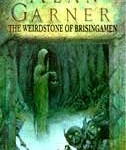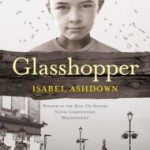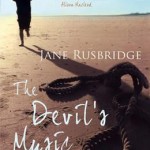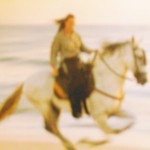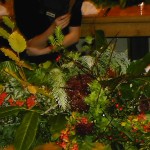 Those of you who have been on Arvon courses will know that taking part in the cooking is integral to the Arvon experience. At The Hurst, I was a member of the Thursday Singing Crew and whilst stirring my onions and belting out Songs from the Shows, I thought about the creative process.
Those of you who have been on Arvon courses will know that taking part in the cooking is integral to the Arvon experience. At The Hurst, I was a member of the Thursday Singing Crew and whilst stirring my onions and belting out Songs from the Shows, I thought about the creative process.
As I see it, when you get ideas for a book and you do research, you’re looking in the fridge and the larder. You dig out the things you have in store, your experiences, your memories. Maybe you pick up something new. You assemble all your bits like the TV chefs and have a good think.
You might already know the shape of the book, the form it will take: you’d know if you intended to make a soup or a sorbet. Likewise, you’d have an idea of genre be it a ghost story or a spy thriller. Sometimes the best things come from fusion – anyone for supernatural romance or a sci-fi western? Whatever it may be, you’d need some idea of the conventions if only to subvert them.
Some mixes might have limited appeal, like snail porridge or a robotic bodice-ripper but throwing everything in results in a mish-mash, a pot-boiler, which pleases no-one. You know the kind of bottom of the fridge stir-fry, or plot with far too many elements thrown at it. The Venetians have an expression:
non piu di cinque ( no more than five)
not a bad idea in writing as well as in your risotto. The more you add, the more it diminishes the whole.
But that doesn’t mean the judicious use of herbs and spices doesn’t have its place. Just a little of something unexpected can lift the ordinary into first class: chocolate in your chilli; an astonishing image at a critical moment. It all comes with effort and odd bursts of inspiration.
At first, you stick to the recipe, read every How-to. Then you get bolder, take a few risks, produce the weird and the inedible. Only after a great deal of experimentation, maybe with the help of someone more experienced, do you learn how to handle it yourself.
Finally, I hope, you reach a stage where your work pleases your taste and people like what you do. You create for yourself, using your own intuition as a guide but not ignoring thousands of years of tradition. You have a style, a voice of your own and, although people may adapt what you’ve done, you make something distinct and original.
Like a soufflé, there may be lots of work done to create a short-lived moment, but at best, something may linger in the memory of many people. We all need things to sustain us.
 This morning I’ve been writing lists and laying out clothes in preparation for the 5th Chichester Writing Festival. I can feel a fizz of excitement inside and my inner eight year old is squealing and running around.
This morning I’ve been writing lists and laying out clothes in preparation for the 5th Chichester Writing Festival. I can feel a fizz of excitement inside and my inner eight year old is squealing and running around.




